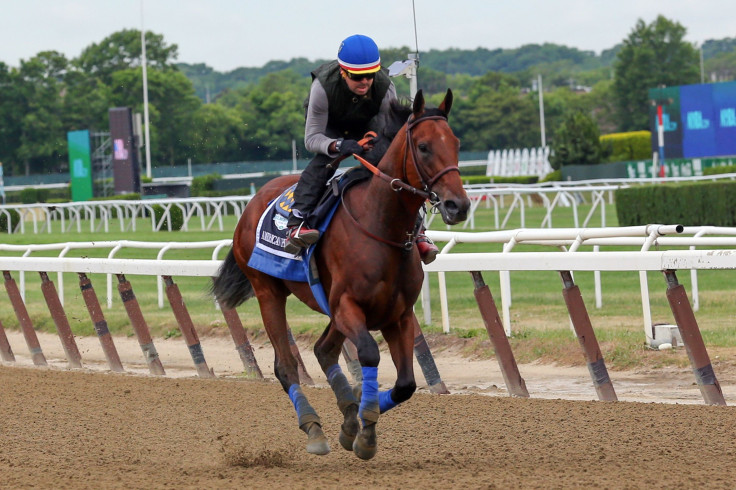American Pharoah Won't Win Belmont Stakes, Triple Crown, Scientific Studies Show

American Pharoah will not win the Belmont Stakes. So says history and science, which have both shown that it is near impossible for the racehorse to finish first Saturday afternoon at Belmont Park and attain the Triple Crown honor that has eluded contenders since 1978. From the sui generis nature of Belmont Park's one-and-a-half mile race track to the lack of recovery time for horses that have competed in the Preakness and the Kentucky Derby, the possibility of a Triple Crown contender succeeding at Belmont Stakes is scientifically next to nothing, according to multiple media outlets.
At Slate, Edward McClelland showed that if you placed a $2 win bet on every horse that ran against a Triple Crown contender in the Belmont Stakes since 1979, you would have received $427.10 on a $202 bet. Because the winner of the Kentucky Derby and the Preakness will almost always be a crowd favorite, the actual possibility for the horse to win is generally much lower than the betting odds.
However, Wired suggested that the reason why it is nearly impossible for a Triple Crown contender to win the Belmont Stakes is not evidence from past data but rather three medical reasons.
First, a horse's body replaces glycogen, which is used up during intense exercise, at a slower rate than humans. Because of a side effect of the widespread use of a drug called Lasix, a powerful diuretic which is used to prevent horses from bleeding into their airways during a race, horses regain weight, glycogen and electrolytes even slower, because much of it is lost in a horse's urine. Lasix was introduced in the 1970s, right around the time that Triple Crown winners stopped occurring.
Second, the long distance of the Belmont Stakes -- a quarter of a mile longer than the Kentucky Derby -- makes it a race of attrition, dependent on which horse can last the longest. The muscular damage of a horse going its fastest adds up and makes it much more difficult to sustain the wear and tear of a longer race.
Finally, Wired suggests that each gallop of a horse can cause multiple micro-fractures in a horse's skeleton from putting all of its weight on a single leg. This damage is repaired slower than normal because of Lasix, which causes the horse to lose some of its much-needed calcium if it doesn't have a long recovery period between races.
© Copyright IBTimes 2025. All rights reserved.






















